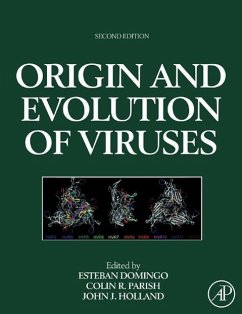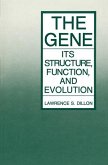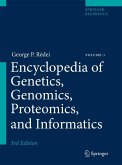New viral diseases are emerging continuously. Viruses adapt to new environments at astounding rates. Genetic variability of viruses jeopardizes vaccine efficacy. For many viruses mutants resistant to antiviral agents or host immune responses arise readily, for example, with HIV and influenza. These variations are all of utmost importance for human and animal health as they have prevented us from controlling these epidemic pathogens. This book focuses on the mechanisms that viruses use to evolve, survive and cause disease in their hosts. Covering human, animal, plant and bacterial viruses, it provides both the basic foundations for the evolutionary dynamics of viruses and specific examples of emerging diseases.
NEW - methods to establish relationships among viruses and the mechanisms that affect virus evolution UNIQUE - combines theoretical concepts in evolution with detailed analyses of the evolution of important virus groups SPECIFIC -Bacterial, plant, animal and human viruses are compared regarding their interation with their hosts
Hinweis: Dieser Artikel kann nur an eine deutsche Lieferadresse ausgeliefert werden.
NEW - methods to establish relationships among viruses and the mechanisms that affect virus evolution UNIQUE - combines theoretical concepts in evolution with detailed analyses of the evolution of important virus groups SPECIFIC -Bacterial, plant, animal and human viruses are compared regarding their interation with their hosts
Hinweis: Dieser Artikel kann nur an eine deutsche Lieferadresse ausgeliefert werden.
Review of the previous edition:
"...this book...is a detailed account of current thinking on virus evolution... Because of the diversity of subjects, this book gives an up to date picture of research in various fields of virology, and helps to tease out connections between these fields. The subjects covered are essential reading for virologists but also have direct relevance for molecular biologists, and indeed any researchers with interests in early evolution... This publication is highly recommended for its breadth of coverage and detailed treatments of the various subjects" --TODAY'S LIFE SCIENCE (February 2001)
"...this book...is a detailed account of current thinking on virus evolution... Because of the diversity of subjects, this book gives an up to date picture of research in various fields of virology, and helps to tease out connections between these fields. The subjects covered are essential reading for virologists but also have direct relevance for molecular biologists, and indeed any researchers with interests in early evolution... This publication is highly recommended for its breadth of coverage and detailed treatments of the various subjects" --TODAY'S LIFE SCIENCE (February 2001)








